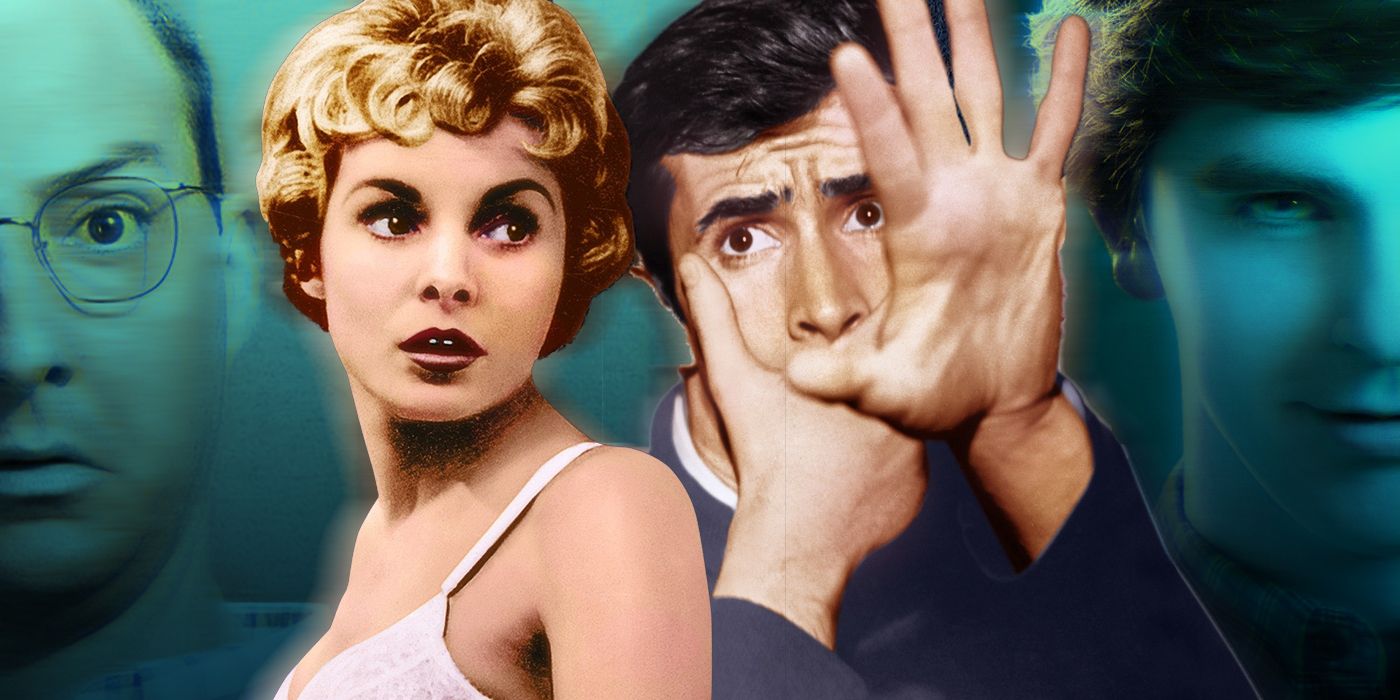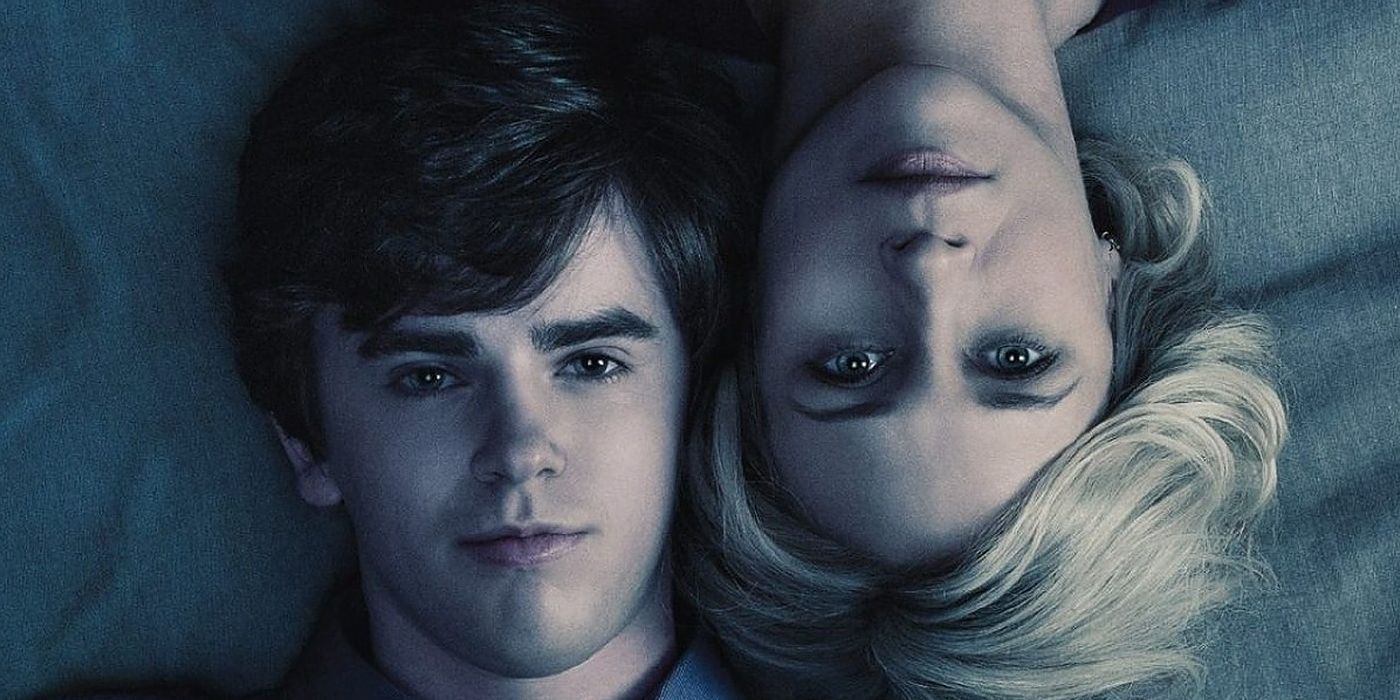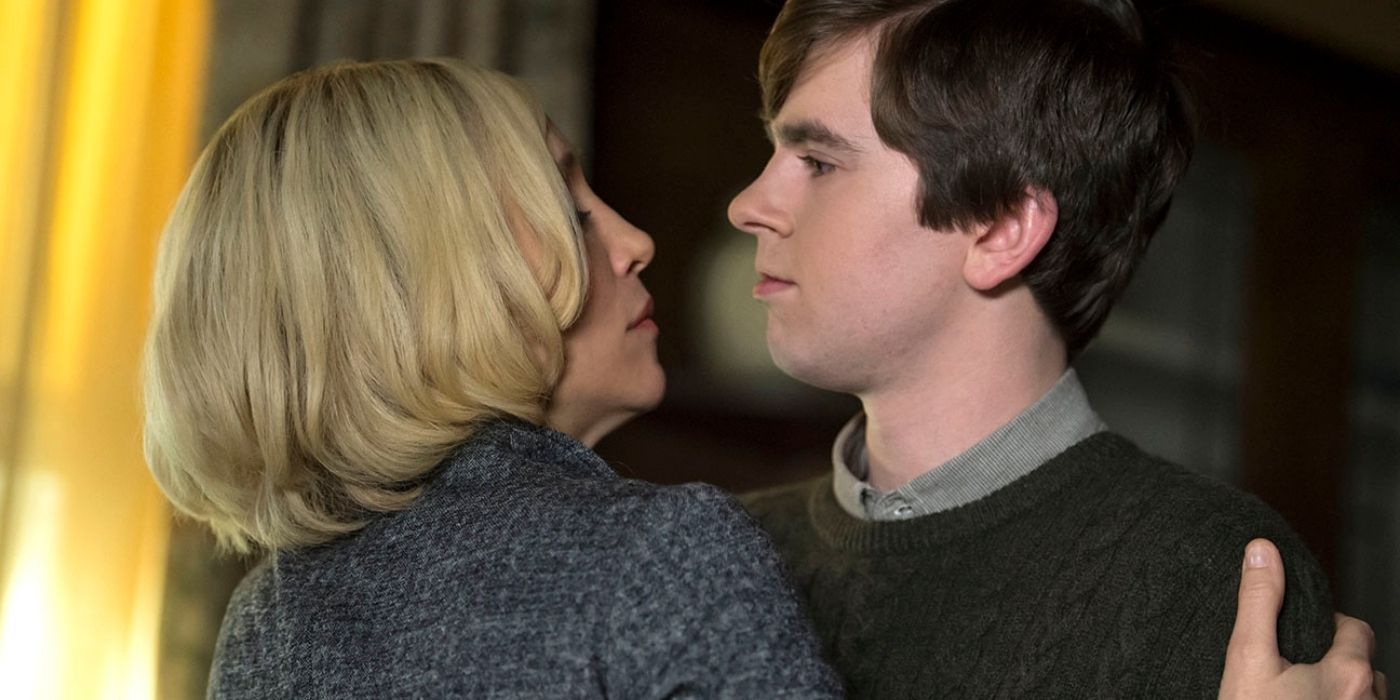
Thanks to Alfred Hitchcock's signature moviemaking magic, Psycho is one of the most recognizable films in cinema history. He adapted the movie from Robert Bloch's 1959 novel of the same name, where the author conjured up Norman Bates, Mother and the motel. Although the story follows Marion Crane and the investigation into her subsequent murder, Norman's strange relationship with his mother steals the spotlight. While Psycho is certainly not the first to feature a twisted mother/son relationship, it's largely responsible for popularizing the trope in entertainment.
Norman's relationship with his mother is toxic. As a child, his mother, Norma, brainwashes him into believing sex is a sin, and all women -- except her -- are "whores" who want to corrupt him. Despite this, Norman and Norma live alone together and are extremely close until she meets her fiance, Joe Considine. It's Joe who convinces Norma to purchase the motel. Overcome with jealousy regarding his mother's preoccupation with her new lover, Norman kills them both with poison. Consumed with guilt, Norman's personality splits. He exhumes his mother's corpse and keeps her in the house. There, he bounces back and forth between Norman, the timid motel manager, and Mother, the killer of all women Norman is attracted to.

It's a character dynamic for psychology textbooks and one that Norman -- and first-time viewers -- aren't aware of until Psycho's climactic reveal. While Norman and Norma's relationship is abusive and downright disturbing, it's captivating nonetheless. A&E's prequel series Bates Motel expands on the relationship further, taking audiences back to a time when the infamous Norma is still alive. The show manages to make Norman and Norma's "weird" relationship even weirder, with the two even sharing a lingering kiss. So, while Bates Motel keeps with Psycho's spirit, it amps up the horror, pushing the mother/son relationship further into the realm of taboo.
While the sexual aspect was primarily cast aside -- and for good reason -- Psycho's antagonists laid the groundwork for entertainment's twisted mother/son relationship trope. Norma's overbearing, cruel nature combined with Norman's obsession with answering her every beck and call makes for good comedy.

Arrested Development's Lucille Bluth and her son Buster employ this dynamic well. Lucille and Buster frequently raise eyebrows with their unusual bond. Like Norman, he addresses her only as Mother and quickly comes to her defense despite her cruelty. On the other hand, Lucille is jealous of his romantic relationships. More often than not, their relationship resembles a married couple rather than a mother/son. The result is cringe-inducing hilarity, purposely meant to make viewers uncomfortable.
Animation also jumped in on the action. The Simpsons' Skinner and his mother Agnes are essentially cartoon versions of Norman and Norma, with the show blatantly referencing Psycho multiple times. Stan Smith and his mother Betty model a similar relationship in American Dad! While Betty isn't cruel, she knows how to manipulate Stan. As such, Stan's profoundly jealous of her many boyfriends -- who he kidnaps and drops on a remote island -- and frequently calls his mother "beautiful" and "sexy," much to his wife's disgust.

The shows unabashedly inspired by Psycho make light of the relationship, choosing to play elements of it for laughs, even though it remains horrific. However, other properties lean more into the inherent darkness and trauma. In Boardwalk Empire, Jimmy Darmody's not-so-subtle Oedipal relationship with his mother results in a controversial incestual storyline. And Fear the Walking Dead's newest villain admits to murdering his mother because she thought he was "disturbed," though he continues to converse with her -- much like Norman does -- after death.
Although Boardwalk Empire and Fear the Walking Dead haven't confirmed taking inspiration from the Bates family, it's hard not to think of Norman and Norma due to Psycho's memorability. In a way, Psycho modernized the Greek tragedy Oedipus Rex by highlighting a nefarious subject through a fictional horror lens. Hitchcock worked his magic, delivering equal parts shock, disgust and fascination. As such, the film's legacy stretches far and wide. Along with the terror-inducing shower scene, Norman and Norma's relationship almost single-handly popularized and revolutionized the twisted mother/son relationship seen in entertainment today.
0 Comments